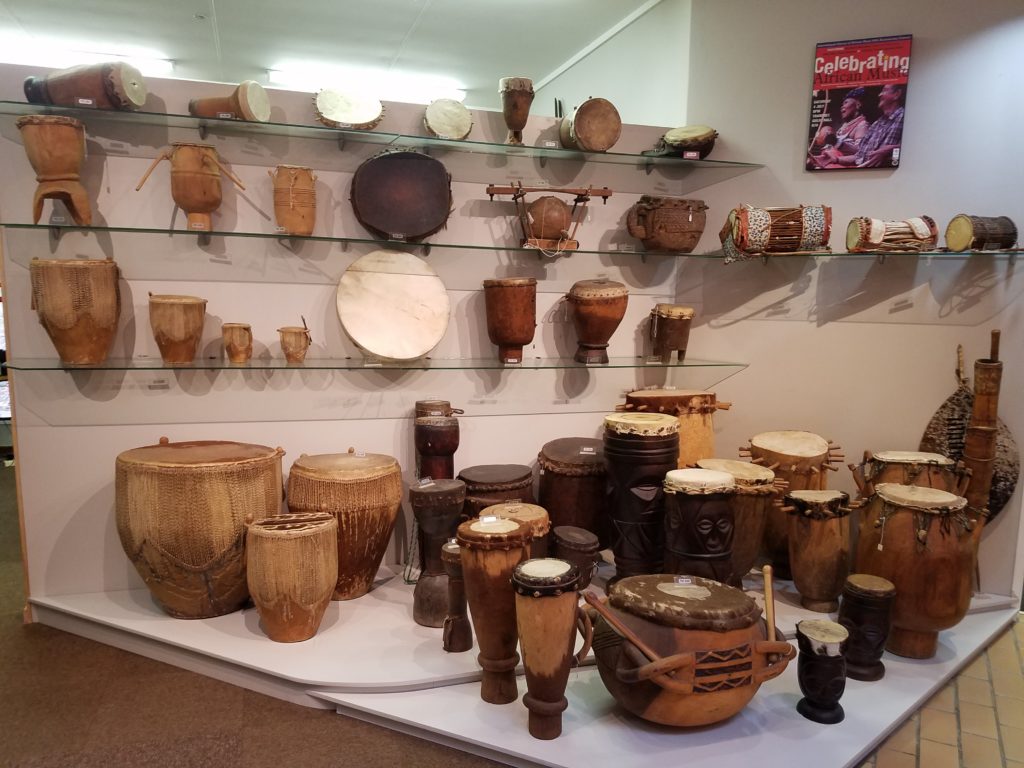JORDAN PATTERSON
News Editor
Paul Chambers answered his phone on a 50 degree night in Polokwane, South Africa around 9 p.m. on Sunday. To him, a native of New York State, this weather was a delight, but to the locals it was what they would consider freezing.
Last Summer, Chambers went from driving an automatic vehicle in the right lane to having to purchase a used manual car in the Limpopo Province of South Africa. Having never driven stick, he had to learn quickly.

The former Fredonia music education major is in South Africa researching a certain type of music called Dinaka, commonly associated with the Dinaka Reed Pipe Dance performed by the Pedi people who populate the province. Chambers is only able to do this through his Fulbright Program award that he received last year after receiving his master’s in music performance with a focus in percussion.
His story will be one of many told at the SUNY-wide Fulbright Conference to be held on April 7 from 1 to 3 p.m. in the Williams Center Horizon Room.
The Fulbright Program gives awards out to applicants comprised of students and faculty. It was founded by Sen. J. William Fulbright just after WWII with the idea to connect different cultures. This year’s theme is “Globalization Matters: And You Can Make a Difference.” There are currently three awards that are given out: the Traditional Program, the Specialist Program and the Student Program. The Student Program is then broken up into an English language program and a traditional program that Chambers was awarded.
Fredonia will host the conference for the first time in six years, as the host of the conference always changes with the routine SUNY wide campus rotation. Communication professor Ted Schwalbe and English professor Iclal Vanwesenbeeck will present in person and Chambers will present from South Africa, technology permitting. The conference serves as a way to promote this program and pique student and faculty interest in applying.
The Fulbright Award allows students and faculty alike an opportunity to conduct their own research in various places in the world.
Chambers, for example, chose to research the Dinaki style of music after guidance from music professor Karolyn Stonefelt and a colleague Diane Thram. Thram was the former director of International Library of African Music in South Africa. This library is where Chambers will be submitting his work when he’s finished in June.
Until then, Chambers continues to seek out villages in the Limpopo Province and record their style of music, Dinaki.
The city of Polokwane serves as his current base of operations as he attempts to transcribe the recordings into a “Western musical notation,” so that he can teach this style of music to Westerners upon his return.
The event will feature an opening introduction from Provost Terry Brown and at 2:30 p.m. there will be breakout sessions with a more indepth look at the Fulbright Program.
“It doesn’t matter what your major is, you don’t have to be international studies or political science, students from all kinds of majors and faculty from all kinds of majors can get involved in the Fulbright Program,” Schwalbe said.
“It is just such a tremendous opportunity and we get back so much more than we give in these kinds of experiences, we learn so much, we meet such wonderful people and ultimately, of course for faculty, we bring back so much more to our students because we’ve had these kinds of experiences that can’t be read out of a book,” he added.
Chambers and Schwalbe agreed that a big goal of this program would be to attack the typical stereotypes about remote counties and the stereotypes of Americans, too.
Chambers joked that his friends and family back home think he’s riding around in a leotard on a lion, while natives of the rural villages think that living in New York State simply means he stares out of a skyscraper everyday. Both of these assumptions are false, and that is precisely what Chambers and Schwalbe think the Fulbright Program can help diminish.
For Chambers, this unique experience allows him to visit these rural villages made up of concrete shacks with either tin or grass roofs, and on occasion these homes don’t have running water.
Another goal that Chambers and his colleagues are trying to do is once they collect all of the recordings, they want to give them back to people who performed the music so that it is authentically preserved with the rightful owners.
This experience that allowed Chambers to travel to South Africa and meet the native people of Limpopo Province is all thanks to numerous people, including Chambers himself, but this experience wouldn’t have happened without Fulbright.
